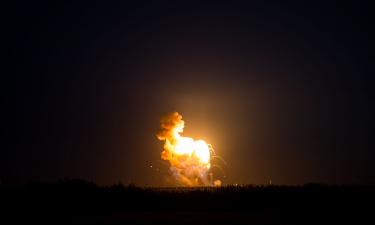About 2,000 firms were involved into oil-for-food fraud
More than 2,000 companies paid about $1.8-billion in illicit surcharges to Saddam Hussein's government through extensive manipulation of the UN oil-for-food program in Iraq, according to key findings of a UN-backed investigation.
The report - to be released in full Thursday by the committee probing claims of wrongdoing in the $64-billion program - indicates that about half the 4,500 companies doing business with Iraq paid illegal surcharges on oil purchases or kickbacks on contracts to supply humanitarian goods.
The investigators reported that companies and individuals from 66 countries paid illegal kickbacks through a variety of devices while those paying illegal oil surcharges came from, or were registered in, 40 countries.
Thursday's final report of the investigation led by former U.S. Federal Reserve chairman Paul Volcker strongly criticizes the UN Secretariat and Security Council for failing to monitor the program and allowing the emergence of front companies and international trading concerns prepared to make illegal payments.
According to the findings, the Banque Nationale de Paris S.A., known as BNP, which held the UN oil-for-food escrow account, had a dual role and did not disclose fully to the United Nations the firsthand knowledge it acquired about the financial relationships that fostered the payment of illegal surcharges.
The oil-for-food program was one of the world's largest humanitarian aid operations, running from 1996-2003.
Under the program, Iraq was allowed to sell limited and then unlimited quantities of oil provided most of the money went to buy humanitarian goods.
But Hussein, who could choose the buyers of Iraqi oil and the sellers of humanitarian goods, corrupted the program by awarding contracts to - and getting kickbacks from - favoured buyers, mostly parties who supported his regime or opposed the sanctions.
Mr. Volcker's previous report, released in September, said lax UN oversight allowed Hussein's regime to pocket $1.8-billion in kickbacks and surcharges in the awarding of contracts during the program's operation from 1997-2003.
Mr. Volcker's Independent Inquiry Committee calculated that more than 2,200 companies worldwide paid kickbacks to Iraq in the form of “fees” for transporting goods to the interior of the country or “after-sales-service” fees, or both.
According to the findings, while UN officials and the Security Council were informed about the fraud, little action was taken.
The report is the fifth by Volcker and wraps up a year-long, $34-million investigation that has faulted UN Secretary-General Kofi Annan, his deputy, Canada's Louise Frechette, and the Security Council for tolerating corruption and doing little to stop Hussein's manipulations, the AP reports.
V.Y.
Subscribe to Pravda.Ru Telegram channel, Facebook, RSS!





